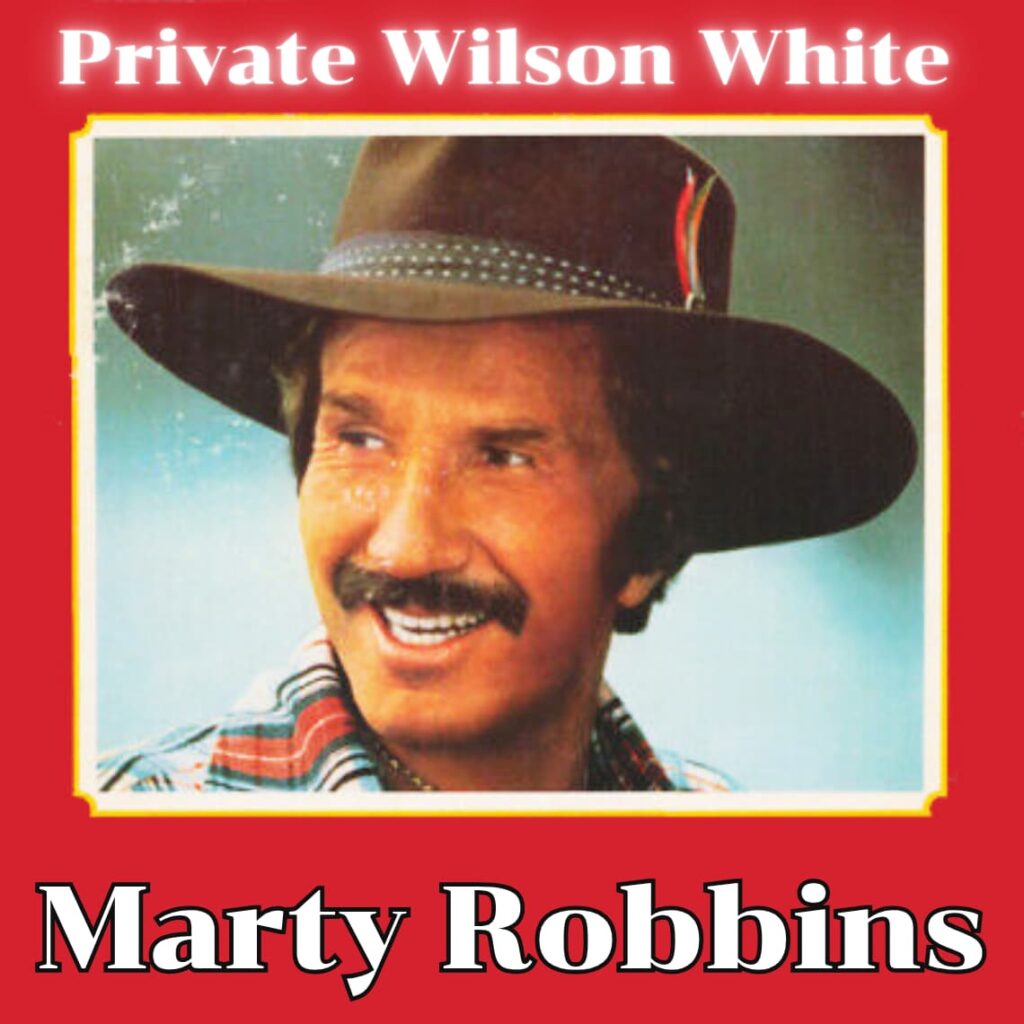
The Poignant Tale of a Soldier’s Unseen Scars
Ah, to cast our minds back to a time when storytelling in song held a particular gravitas, a weight that resonated deeply with the experiences of a nation. In the annals of country music, few artists possessed the narrative prowess quite like the legendary Marty Robbins. And among his vast repertoire, a lesser-known yet profoundly moving piece stands out: “Private Wilson White.” Released in 1971, a year still deeply entrenched in the collective consciousness due to the lingering shadows of the Vietnam War, this song, surprisingly, did not climb the dizzying heights of the charts. While Marty Robbins was certainly no stranger to chart-topping success, with classics like “El Paso” and “A White Sport Coat (and a Pink Carnation)” etching his name firmly into musical history, “Private Wilson White” found its home not in the Top 10, but in the hearts of those who understood its quiet ache. It peaked at a modest No. 59 on the Billboard Hot Country Singles chart, a position that belies its enduring emotional power.
The story behind “Private Wilson White” is one that speaks volumes about the human cost of conflict, a theme that Robbins, with his innate understanding of the everyman, explored with remarkable empathy. While not directly autobiographical, the song captures a sentiment that was undoubtedly palpable across America during that turbulent era. It wasn’t about the grand battles or the political machinations, but about the individual soldier, the one who returned home seemingly unscathed, yet profoundly changed. Marty Robbins had a knack for bringing these often-unseen struggles to the forefront, giving a voice to those who might otherwise have remained silent. His ability to craft vivid lyrical pictures allowed listeners to step directly into the world he created, to feel the dust of the battlefield, the quiet desperation of a returning veteran.
The meaning of “Private Wilson White” is a tapestry woven with threads of unspoken trauma, the invisible wounds of war. It tells the poignant tale of a soldier, Private Wilson White, who returns from Vietnam, outwardly whole, but inwardly shattered. The lyrics subtly paint a picture of a man haunted by what he has witnessed and endured. He’s home, yes, but he’s not truly present. His mind wanders back to the jungles, to the horrors he can’t articulate, to the comrades he lost. It’s a powerful commentary on Post-Traumatic Stress Disorder (PTSD) before the term was widely understood or acknowledged. Robbins doesn’t sensationalize the war; instead, he focuses on its lingering aftermath on the human spirit. The song becomes a quiet plea for understanding, a recognition that not all wounds are visible, and that the scars of war can run far deeper than any physical injury. It’s a reminder that heroism isn’t just about bravery in combat, but also about the silent battle fought within oneself long after the guns have fallen silent.
Listening to “Private Wilson White” today, especially for those of us who remember those times, evokes a powerful sense of nostalgia, tinged with a melancholic understanding. It transports us back to a period when families huddled around radios, absorbing stories and melodies that reflected the national mood. Marty Robbins‘ smooth, resonant baritone, always a comforting presence, lends a particular poignancy to this narrative. His delivery is understated, allowing the weight of the words to settle gently upon the listener. There’s no grandstanding, no dramatic flourishes, just the simple, unvarnished truth of a soldier’s burden. This song, though not a chart-topper, serves as a timeless reminder of the sacrifices made by so many, and the quiet struggles that often continued long after their return. It’s a testament to Marty Robbins‘ artistry that he could distill such a complex human experience into a few verses, leaving an indelible mark on our hearts and minds. It reminds us of an era when country music truly was the voice of the people, reflecting their joys, their sorrows, and their enduring strength.